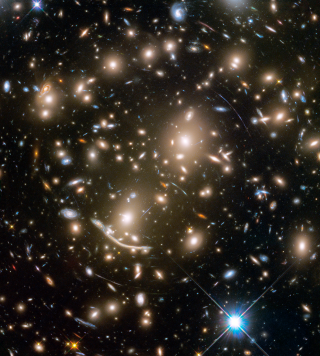Bibcode
Dalla Bontà, E.; Davies, R. L.; Houghton, R. C. W.; D'Eugenio, F.; Méndez-Abreu, J.
Referencia bibliográfica
Monthly Notices of the Royal Astronomical Society, Volume 474, Issue 1, p.339-387
Fecha de publicación:
2
2018
Número de citas
9
Número de citas referidas
8
Descripción
We present a photometric analysis of 65 galaxies in the rich cluster
Abell 1689 at z = 0.183, using the Hubble Space Telescope Advanced
Camera for Surveys archive images in the rest-frame V band. We perform
two-dimensional multicomponent photometric decomposition of each galaxy
adopting different models of the surface-brightness distribution. We
present an accurate morphological classification for each of the sample
galaxies. For 50 early-type galaxies, we fit both a de Vaucouleurs law
and a Sérsic law; S0s are modelled by also including a disc
component described by an exponential law. Bars of SB0s are described by
the profile of a Ferrers ellipsoid. For the 15 spirals, we model a
Sérsic bulge, exponential disc and, when required, a Ferrers bar
component. We derive the Fundamental Plane (FP) by fitting 40 early-type
galaxies in the sample, using different surface-brightness
distributions. We find that the tightest plane is that derived by
Sérsic bulges. We find that bulges of spirals lie on the same
relation. The FP is better defined by the bulges alone rather than the
entire galaxies. Comparison with local samples shows both an offset and
rotation in the FP of Abell 1689.
Proyectos relacionados

Evolución de Galaxias en Cúmulos
Las estructuras en el Universo, a todas las escalas de masa, se han formado de una forma jerárquica y principalmente producidas por fusiones de galaxias. Sin embargo, esta formación jerárquica de las galaxias está modulada por el entorno en el cual se crean y evolucionan. Mientras que las galaxias de campo presentan una evolución pasiva, los
Jairo
Méndez Abreu